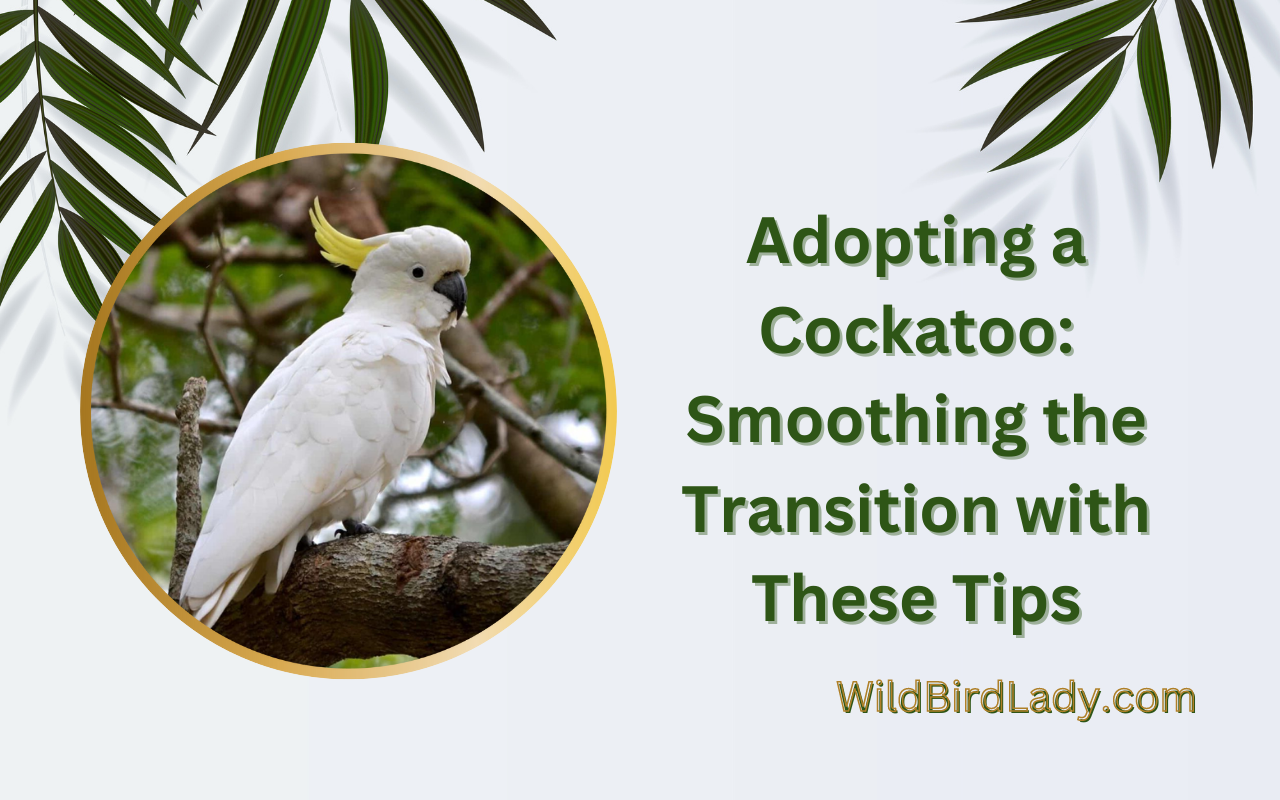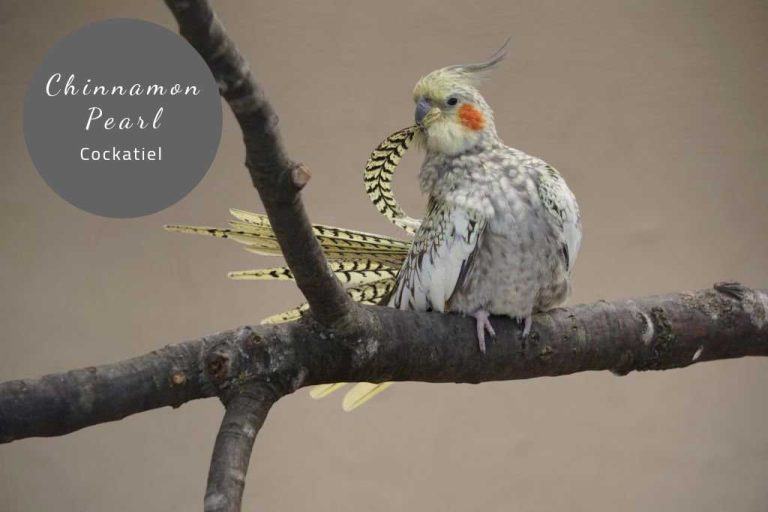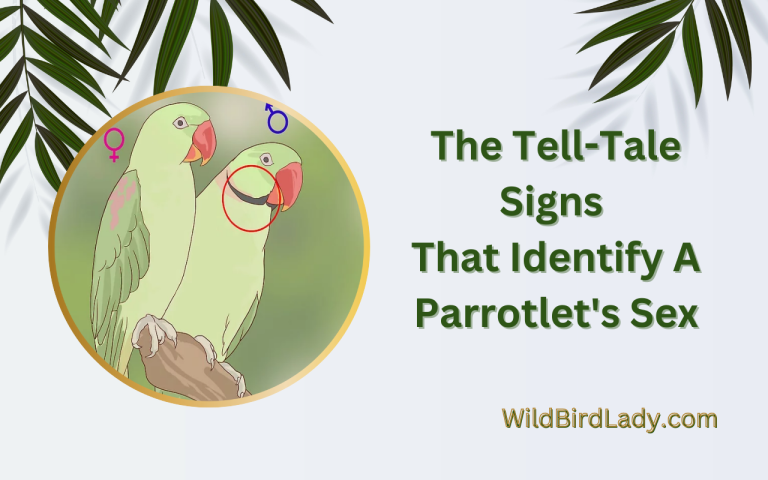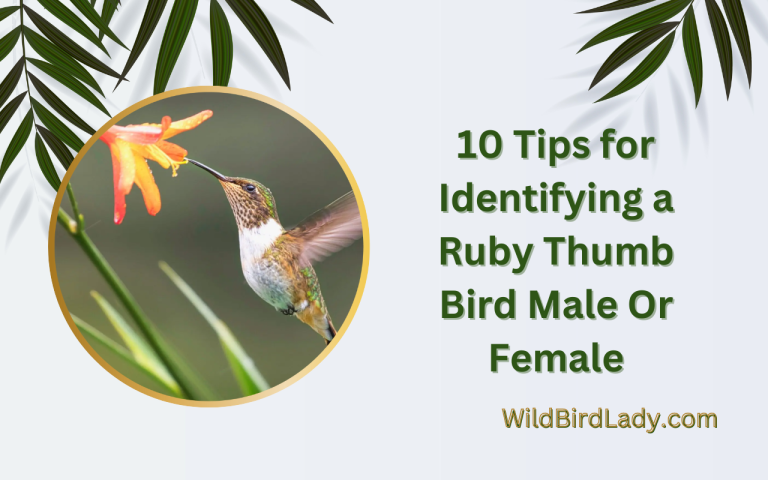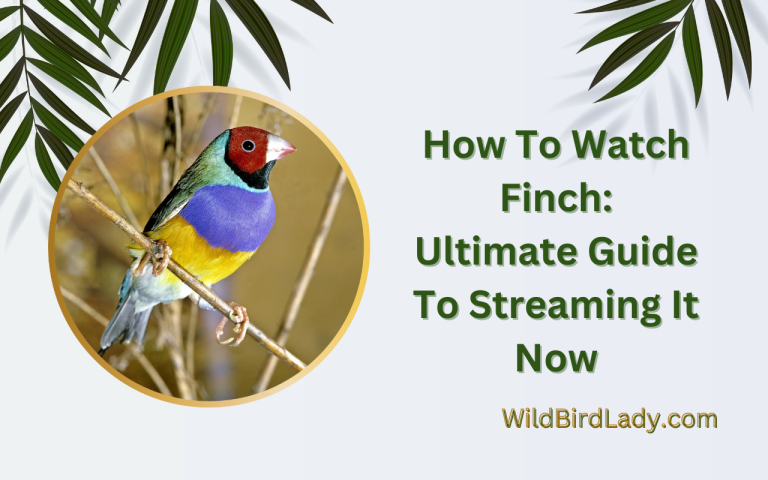Adopting a Cockatoo: Smoothing the Transition with These Tips.
Adopting a cockatoo requires careful planning and patience. Preparation is key for a smooth transition into your home and new family member.
Cockatoos make loving and intelligent pets that require a lot of attention and care. Before adopting a cockatoo, ensure you have adequate space, time, and resources to provide for their needs. It’s essential to have a suitable living space, vet care, and a healthy diet.
Additionally, cockatoos love to play, so be prepared to spend time with them daily to ensure mental and physical stimulation. As social creatures, cockatoos crave attention and companionship, making them great pets for those looking for a loyal feathered friend. In this article, we’ll explore some tips and tricks to ensure a smooth transition for adopting a cockatoo.
Understanding Cockatoos: The Basics
Adopting A Cockatoo: Smoothing The Transition With These Tips
Cockatoos are beautiful birds known for their distinctive crests and playful personalities. If you’re considering adopting one, it’s essential to understand the basics of their behavior, habitat, and personality traits. We’ll also discuss potential challenges associated with having cockatoos as pets.
So, before you bring a feathered friend into your home, it’s essential to do your research and prepare for the transition.
Behavior And Habitat Of Cockatoos
Cockatoos are native to australia and surrounding islands, and they are found in a variety of habitats, from grasslands to forests. In the wild, cockatoos are social birds that live in large flocks and are known for their loud calls and playful behavior.
As pets, cockatoos require a spacious cage that is at least three times taller than their wingspan and filled with plenty of toys, perches, and bird-safe chewing materials. When outside the cage, they require constant supervision and interaction with their owners.
They need regular stimulation and exercise to maintain their overall health and happiness.
Personality Traits Of Cockatoos
Cockatoos are known for their intelligent and playful personalities. They are social birds that require attention and affection from their owners. Cockatoos can be incredibly affectionate and become very attached to their owners, often preferring them over other birds. They are also very vocal and love to mimic sounds, including human speech.
However, cockatoos are also known for their stubbornness and can be quite destructive if not given enough attention and stimulation. They are birds that require a lot of time and effort from their owners, and only those who are willing to provide them with the necessary care should consider adopting them.
Potential Challenges Of Having A Cockatoo As A Pet
Cockatoos can be challenging pets and are not for everyone. They require a lot of attention and training, as they can become aggressive if not handled correctly. They are also very messy birds and produce significant amounts of dust and feathers.
This means that cleaning their cage and surrounding area will be an ongoing task.
Furthermore, cockatoos require a specialized diet and can develop health problems if not fed a balanced and nutritious diet. They also have a long lifespan, and their owners will need to be prepared to provide for them for many years.
The Importance Of Researching And Understanding The Cockatoo Breed Before Adopting
Before adopting a cockatoo, it’s essential to do your research and understand the responsibilities associated with owning one. Cockatoos are not for everyone, and only experienced bird owners should consider adopting them. Doing your research will help ensure that you’re prepared for the challenges that come with owning a cockatoo and will enable you to provide the necessary care and attention to keep them happy and healthy.
Adopting a cockatoo can be a rewarding experience for those willing to put in the effort and dedication required. Understanding their behavioral tendencies, personality traits, and potential challenges is crucial before deciding to bring one home. By doing your research and preparing correctly, you can ensure a smooth transition for both you and your new feathered friend.
Preparing For Your Cockatoo’S Arrival
Preparing For Your Cockatoo’S Arrival
Welcoming a new pet into your home can be an exciting adventure. However, it is essential to prepare yourself and your home as much as possible before your cockatoo’s arrival. Here are some crucial steps you can take to make the transition as smooth as possible:
Preparing Your Home For A Cockatoo
- Designate a safe living space: Cockatoos require a spacious living area to roam, play, and feel comfortable, so ensure you create a safe living space that is free from hazards. Consider investing in a spacious cage for times when you cannot supervise your cockatoo.
- Remove toxic substances: Ensure that any toxic cleaning products, chemicals, or plants are out of reach. Cockatoos are inquisitive, and they tend to chew on things, making it essential to remove any harmful substances from their living space.
- Secure electrical cords: Cockatoos enjoy chewing, and electrical cords and lamps can be a tempting target. Ensure that all electrical cords are out of your feather friend’s reach to prevent any electrocution risks.
- Remove any sharp edges: Cockatoos enjoy climbing and perching on surfaces. Ensure you remove any sharp edges from their living space to prevent injuries.
Essential Items For Your Cockatoo’S Living Space
- Spacious cage: A spacious cage is fundamental for every cockatoo’s comfort, so ensure that you invest in a cage that is large enough for your bird to move, play, and express itself freely.
- Food and water bowls: Cockatoos will need access to a consistent supply of clean water and food. Be sure to invest in high-quality feeders that are appropriate for their size and needs.
- Perching and climbing tools: Cockatoos love to climb and perch, so you’ll need to provide them with the right tools to do so. Purchase perches in different materials, widths and swings for a variety of use.
- Toys: A variety of toys is essential for your cockatoo’s mental and physical wellbeing. Cockatoos are notorious for their love of interactive toys, so investing in items like bells, strings, foraging toys and puzzle toys can help keep them stimulated.
- Cuttlebone and mineral block: Cockatoos need to keep their beaks and nails at a healthy size, so besides toy sets, cuttlebone and mineral block are also necessary for their living space.
The Importance Of Creating A Routine
Cockatoos thrive on routine, so prepare a daily routine that includes a fixed time for their daily food intake, play sessions and socialisation. Here are some crucial routine elements to consider:
- Meal time: Plan routine meal times to provide consistency in your pet’s life.
- Play time: Introduce different kinds of toys and encourage cockatoo playtime outside of the cage with you at least 2 hours a day to keep them stimulated and entertained.
- Socialisation: Cockatoos need to interact with people – make sure there is a designated time for socialisation.
Creating A Welcoming Environment
Creating a welcoming environment can make all the difference in how your cockatoo settles into their new home. Here are some tips to make their new home comfortable:
- Keep a quiet environment: Allow your cockatoo to have their space free from loud noises or bright lights to adapt and feel at ease.
- Becoming familiar: Cockatoos may take some time to adjust, so be patient and help them acclimate by hand-feeding treats with positive reinforcement techniques.
- Positive attitude: A positive attitude and bonding time will make them feel loved and secure, and your cockatoo will reciprocate with love and affection.
Bonding With Your Cockatoo
Adopting A Cockatoo: Smoothing The Transition With These Tips
If you’ve recently adopted a cockatoo, congratulations! These beautiful birds are intelligent, loving, and great companions. However, bonding with your new feathered friend can take some time and patience. Here are some helpful tips to assist you in establishing a strong relationship with your new cockatoo.
Building Trust With Your Cockatoo
Trust is the foundation of a healthy relationship with your cockatoo. Here are a few tips to help you build trust:
- Provide your cockatoo with a safe and comfortable environment.
- Approach your bird slowly and gently.
- Offer treats or small bits of food from your hand.
- Respect your bird’s boundaries and do not force interaction.
Understanding Body Language And Behavior
Cockatoos express themselves through body language. Paying attention to their behavior and posture will assist you in understanding your bird’s moods. Below are some examples of body language and behavior to look for:
- Puffing up their feathers shows excitement or agitation.
- Flapping their wings or crest may indicate they are feeling threatened.
- Licking or preening their feathers demonstrates contentment or relaxation.
- Lunging or biting signifies fear or aggression.
Spending Time With Your Cockatoo
Spending time with your cockatoo is essential for bonding. Here are a few suggestions to help you spend quality time with your bird:
- Maintain a daily routine and schedule regular interaction time.
- Provide a variety of toys and safe objects for your bird to play with.
- Talk and sing to your bird to help establish a bond and trust.
- Allow your bird to explore outside of the cage in a safe and supervised environment.
The Importance Of Positive Reinforcement
As with all animals, positive reinforcement is critical in establishing good behavior. Below are some examples of positive reinforcement strategies:
- Use treats and praise to reward good behavior.
- Correct unwanted behavior without punishment or negative reinforcement.
- Consistency is key to reinforcing good behavior.
- Identify your bird’s favorite reward and use it to encourage desirable behavior.
By following these tips for bonding with your cockatoo, you’ll establish a strong and loving relationship with your new feathered friend. Remember to be patient and consistent, and above all, enjoy your new companion!
Addressing Behavioral Issues
Adopting A Cockatoo: Smoothing The Transition With These Tips
Cockatoos are known for their affectionate personality, playful behavior, and beautiful plumage. Owning a cockatoo can be rewarding, but it requires a considerable amount of time, dedication, and patience. If you’ve recently adopted a cockatoo, it is essential to understand the common behavioral issues and effective ways to address them.
Here are some tips to ensure a smooth transition for your new feathered friend.
Common Behavioral Issues In Cockatoos
Cockatoos can exhibit several behavioral issues due to a lack of proper training and attention. Some of the common behavioral issues that cockatoos can develop are:
- Feather plucking or mutilation
- Screaming or excessive noise-making
- Biting or aggression
- Laying eggs
Cockatoos are intelligent birds and require plenty of mental and physical stimulation. Lack of attention and exercise can lead to boredom and frustration, resulting in unwanted behavior. Proper training and socialization can help prevent these issues from becoming severe.
Effective Ways To Redirect Unwanted Behavior
Redirecting unwanted behavior requires patience and consistency. Some of the effective ways to redirect unwanted behavior in cockatoos are:
- Positive reinforcement: Rewarding good behavior with treats, praise, and attention can encourage your cockatoo to repeat the desired behavior.
- Ignore negative behavior: Ignoring bad behavior can discourage your cockatoo from repeating the undesired behavior.
- Provide toys and activities: Providing toys and activities can keep your cockatoo entertained and mentally stimulated. Toys that require problem-solving and physical activity can be especially helpful.
The Importance Of Consistency In Training
Consistency is critical when it comes to training cockatoos. It is essential to establish routines and rules to create a sense of security and predictability for your bird. Some ways to maintain consistency are:
- Establishing a schedule for feeding, exercise, and playtime.
- Using consistent verbal cues and commands for different behaviors.
- Encouraging all members of the family to follow the same rules and routines.
Seeking Professional Help If Needed
Sometimes, despite your best efforts, your cockatoo may exhibit severe behavioral issues that require professional help. A bird behaviorist or avian veterinarian can provide guidance and develop a customized training plan for your bird. It is essential to seek professional help if you suspect your cockatoo is struggling with severe behavioral issues.
Adopting a cockatoo requires patience, dedication, and a willingness to learn. Understanding the common behavioral issues, effective ways to redirect undesired behavior, the importance of consistency in training, and seeking professional help if needed can ensure a smooth transition for your feathered friend.
With proper care and attention, your cockatoo can be a valued and beloved member of your family for many years to come.
Providing Proper Care For Your Cockatoo
Adopting A Cockatoo: Smoothing The Transition With These Tips
Cockatoos are social and intelligent creatures with a lifespan of 40-60 years! Thus, owning a cockatoo requires proper care, commitment, and patience. The transition period can be challenging for both you and your feathered friend, but with these tips, you can smoothen their adjustment to their new home.
Let’s dive deeper into some essential tips for providing proper care for your cockatoo.
Proper Nutrition For Your Cockatoo
Cockatoos need a balanced diet that provides vitamins, minerals, and proteins. A healthy diet includes pellets, fruits, vegetables, seeds, and nuts. However, each species has different nutritional needs, and it’s best to consult with your veterinarian for specific dietary requirements.
- Pellets should make up approximately 60-70% of their diet.
- Fruits and vegetables should make up 25-30% of their diet.
- Seeds and nuts should be given in moderation as they contain high-fat content.
Hygiene And Grooming For Your Cockatoo
Maintaining proper hygiene and grooming for your cockatoo is crucial for their health and wellbeing.
- Your cockatoo’s cage should be cleaned daily, and any uneaten or spoiled food should be removed from their bowls.
- Bathing is essential for your cockatoo’s hygiene. Cockatoos enjoy being sprayed with water or showered with a handheld showerhead. Aim to shower or spray them at least once a week.
- Cockatoos need regular nail and beak trimming. This should be done by a professional as improper trimming can harm them.
Exercise And Mental Stimulation For Your Cockatoo
Cockatoos need mental stimulation and physical activity to prevent boredom and depression. Here are some tips to keep them active:
- Provide plenty of toys, such as ropes, swings, and puzzles. Ensure that the toys are non-toxic and regularly rotate them to prevent boredom.
- Cockatoos love socializing and being around their owners. Spend time with them, and interact with them regularly.
- Encourage your cockatoo to fly around their cage or a specially designated area of your home. Flying helps burn calories, improves the bird’s muscle tone, and is mentally stimulating.
The Importance Of Regular Check-Ups With A Veterinarian
Regular check-ups with a professional veterinarian are crucial for maintaining your cockatoo’s health. An annual check-up should include a physical examination, blood tests, and beak and nail trimming if required. Seek immediate medical attention if your bird is displaying any concerning symptoms, such as lethargy, loss of appetite, or change in the bird’s droppings.
Owning a cockatoo requires dedication and responsibility. Providing your cockatoo with proper nutrition, hygiene, exercise, and mental stimulation will help them live a fulfilling life. Additionally, regular check-ups with a professional veterinarian will keep them healthy. With the tips above, you can help your cockatoo adjust to their new home and ensure they live a healthy and happy life.
Frequently Asked Questions Of Adopting A Cockatoo: Tips And Tricks For A Smooth Transition
What Should I Consider Before Adopting A Cockatoo?
Before adopting a cockatoo, consider factors including housing space, time commitment, and financial resources. These birds can be demanding pets that require a lot of attention and care.
How Can I Prepare My Home For A New Cockatoo?
To prepare your home for a new cockatoo, ensure it has a cage that provides adequate space for the bird to move and play. Remove any toxic household items and secure potentially hazardous areas like windows and doors.
What Should I Feed My New Cockatoo?
A balanced diet is essential for the health of your cockatoo. Feed them a variety of fresh fruits and vegetables, seeds, and a protein source such as pellets or cooked chicken. Consult with your veterinarian for specific dietary recommendations.
How Can I Bond With My New Cockatoo?
Building trust and bonding with your cockatoo takes time and patience. Take the time to get to know your bird’s personality and establish a consistent routine. Offer treats and toys as positive reinforcements and engage in interactive playtime.
What Are Some Common Health Concerns For Cockatoos?
Cockatoos are susceptible to various health concerns, including feather plucking, beak and feather disease, and psittacosis. Regular veterinary check-ups and proper hygiene practices can help prevent and treat these issues.
Conclusion
The decision to adopt a cockatoo can bring joy and companionship to your life, but it’s also important to consider the challenges and responsibilities that come with it. With proper planning and preparation, you can ensure a smooth transition for both you and your new feathered friend.
Remember to provide a comfortable and stimulating living environment, offer a proper diet and exercise routine, establish a consistent and positive relationship, and seek professional help when needed. Patience, consistency, and love are key to a happy and thriving cockatoo.
As a responsible owner, you have the power to create a long-lasting and meaningful bond with your bird. By following these tips and tricks, you can start your journey into cockatoo ownership with confidence and excitement.

